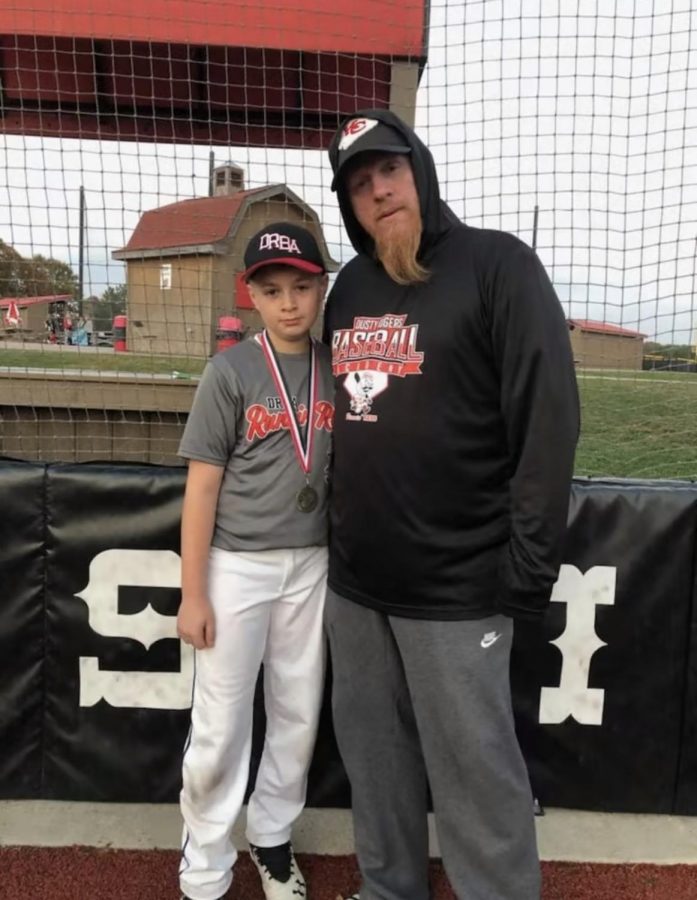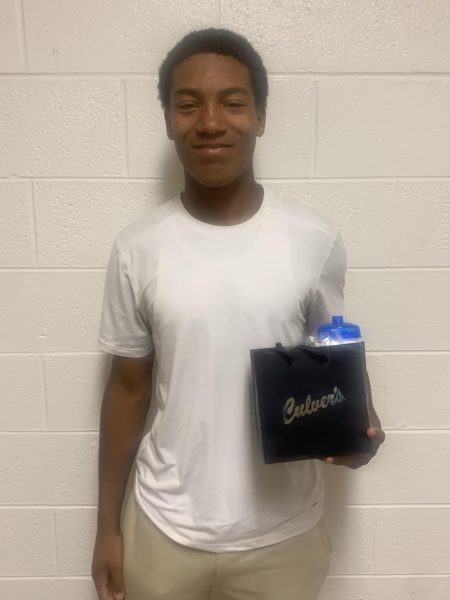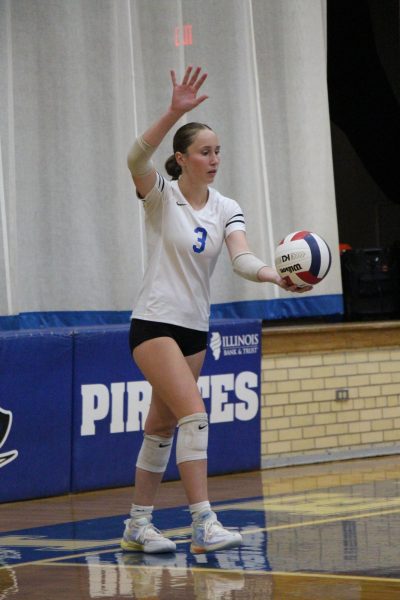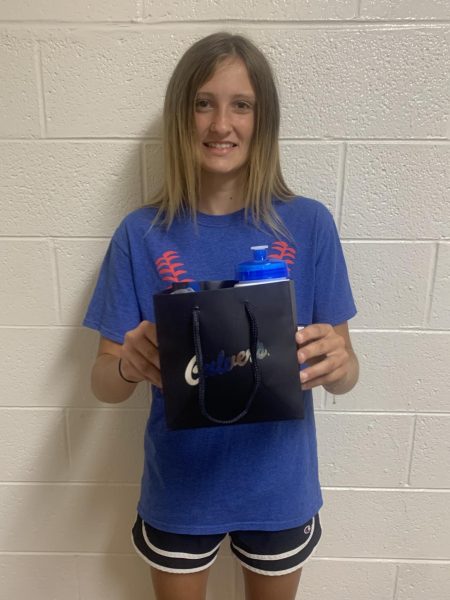“A Coaches Q’s”
With all of the uncertainty within every community right now, there is a lot weighing down young people. They are not only concerned with the present, but they are also looking into an unknown future. As a high school student, I haven’t really been interested in GHS team sports myself. But, luckily, I’ve never been away from the impact that sports has on young people. I decided to interview him once again: Coach Michael Benson. Because of quarantine I decided the best way to contact him was over the phone. Luckily he was on his breakfast break at work and we were able to have a very productive conversation. We were able to dive behind the scenes of this pandemic and how it affects the students through the eyes of the coach.
After a silly transition and asking how his day is going very swiftly moves into the interview; almost like he’s done this before.
JB: So, how is the pandemic affecting the practices?
CB: Well, luckily, baseball is a low-contact sport and there aren’t major differences. However, there is a new dugout situation. All duffel-bags are left outside. Handshakes, high fives, or anything like that is pretty much non-existent. We can’t even share balls with the other teams or really each other.
JB: But the nitty-gritty everything is pretty similar, yes?
B: Yes, for the most part. Pretty much the same besides we take temperatures at the beginning of practice and all meetings are held 6-foot-apart from each other. All of the X’s and O’s are checked and pretty easy. Asking a lot of questions when they [the team] come in and making sure they are healthy and don’t cross the temperature marks. If they don’t then everything is good.
JB: Do you think this is having any side-effects on the players? Do you think they’ve had a mindset change?
CB: The effort and stuff for practice is all there. The effect is, along the lines of, everything being ripped away from them so fast. We were told in the spring we would have a two week break but then everything stopped so suddenly. They have obtained new attitudes now in the sense of being happy they actually get to participate.
JB: Because of everyone’s unknowing, is it difficult to keep up team morale?
CB: The moral of the players goes hand in hand with how you organize everything in practice. I think they are excited to be there despite the uncertainty. Personally, I think there is a lot of doubt about the spring season even happening. But even with this information, their mood is higher because we can still get out and do things in this moment. When the season was over last year they were uncertain if we could come back, plus it was so sudden. Keeping the moral up isn’t the issue, it’s keeping their hopes up that we can practice again next time.
I couldn’t help but get a little emotional hearing about the player’s feelings along with his. Even though he does a pretty good job at covering it up, I could tell he was a little nervous about it too.
JB: Do you think they are using this as an outlet? To let out all of these pent up frustrations?
CB: You think they might be frustrated?
JB: Not exactly. It was just an example.
He lets out a laugh and lets me know he was messing with me. To be fair I should’ve known.
CB: I’m not sure. All types of sports have always been an outlet. Playing and socializing. Practice is a place to still be social in a manner that is okay for the time being. For my players, I try to communicate with them on a personal level inside and outside of baseball. Whether it be calling or texting. I would leave that to going to just the field alone would let out that angst. But it is a place to be normal and things can go ‘back to the way they used to be’. Even if it’s just for a little while.
JB: Do you think that all of this will have an everlasting effect on the future of sports in schools? Or that all of this will melt away with time?
Coach really hated this question, and it was funny hearing him laugh about it. He had said himself that he isn’t a fortune teller and that he also doesn’t know if any of his answers would be appropriate. Or that they would look decent in a newspaper or written in a column. Thinking that anything he had to say about this wasn’t anything profound. But I assured him that everything he can and will provide will be useful, even if he doesn’t think so.
CB: I know for myself that I have learned quite a bit, a lot about how things are perceived in these times. I really think that for me I don’t see much of it holding shape after everything is let go? Can you even print that? That’s kind of subjective? For me… I hope that some of the rules stay in place…not all or to the severity but some of it that makes sense? Keeping your hands to yourself, for the most part, and doing what is right for you and everyone around you.
His uncertainty was definitely a change of pace. He has definitely made a name for himself being very in control of a lot of his emotions. So it was strange but also refreshing to see a different side of the charismatic coach that everyone knows. His confident nature doesn’t really lead to a lot of second guessing when it comes to what he is saying, so once again, very new.
JB: We will print most likely whatever I write. What you’re saying isn’t anything jarring, it’s alright. But, to change the pace, do you think the success rate of the players this season has changed?
CB: Here’s the thing, it depends what your measure of success is. We didn’t play a single game last season. Does that mean we were failing?
JB: How do you measure success for your team?
CB: Don’t measure wins and losses but instead of competing against each other and ourselves. Our ‘success’ rate in that aspect is constantly gaining and huge for us. We didn’t play one game last season, does that mean we are doing poorly? Or does it mean we are working towards becoming better and getting ready for next time. If we are out there practicing and trying in these times that’s the greatest success compared to anything else.
We ended the interview with the typical, ‘thanks for letting me do this’, but I was left with many thoughts that I didn’t express during the interview. Wondering how many people were in the same boat as both me, coach, and the players. Thinking, ‘what’s going to happen next’, I think that coach had a good approach. Seeming to be very in the moment with his feelings. Not trying to stay put in the past and missing what he had before, and not thinking too far into the future and making everything filled with anxiety.
He wasn’t really put on the spot with my questioning, I know he likes to think about his answers carefully and wants to give the best answers possible. But there were a few times he almost struggled to find an answer, mainly because he has no concrete answer for them. Throughout this there was a lot of “this better not be on speaker phone,” was Coach Benson a little bit shy? Probably not. He was probably just humouring me. I’ve interviewed him before.
Being the son of a baseball coach it would be almost insulting if I didn’t interview him for an article basically about his livelihood. Our dynamics as a father-son interviewer and interviewee are pretty strange; he handles my word fumbling and fast typing sounds and I make sure to censor his ‘words of endearment’ to put it simply. But, I think things that happened over the phone were things that needed to happen and needed to be said. Voicing to other people that they aren’t alone or misunderstood in their feelings.
That your confusion in the everyday aspects are valid. As well as having an outlet for your feelings is good for you, it’s good to be able to get things from your mind out in the open. As well as understanding that to be open with your feelings doesn’t always mean being vulnerable, but just going to a baseball field with your fellow teammates and painting a couple of bases.





